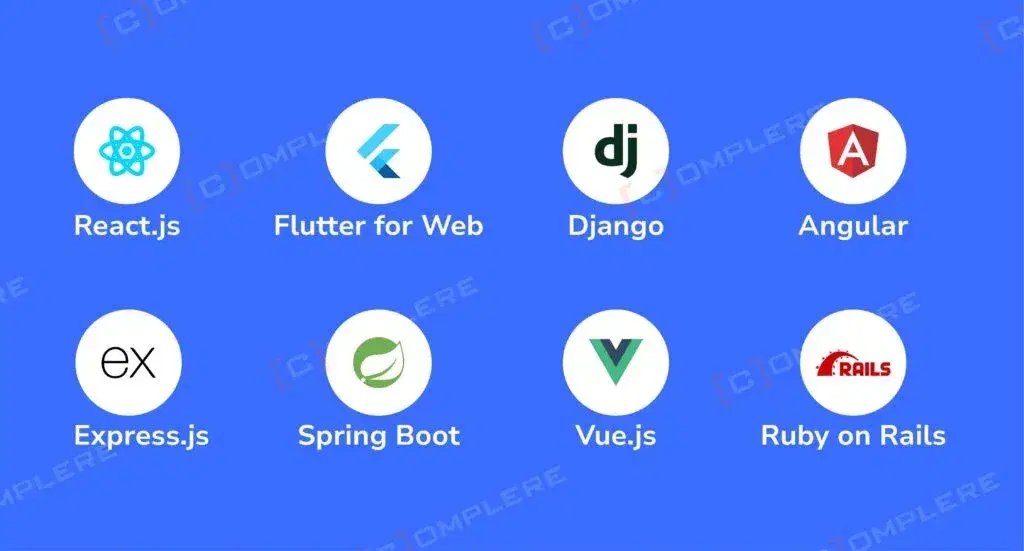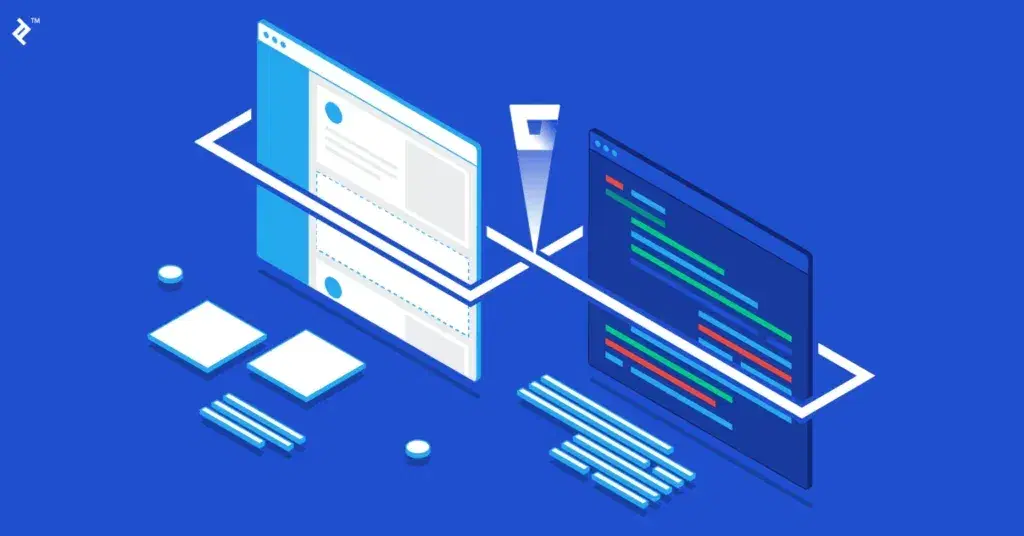Introduction
What is Web Development?

Benefits of Web Development in 2024:

1. Improved User Experience
2. Increased Mobile Traffic
3. Faster Web Development
4. Improved Security Features
5. SEO Advantages
Top 8 Web Development Frameworks for 2024:

- React.js:React.js is a declarative, efficient, and flexible JavaScript library for building user interfaces. It lets you compose complex UIs from small and isolated pieces of code called “components.” React has a robust ecosystem and strong community support, making it an ideal choice for web app development.
- Vue.js: Known for its simplicity and ease of integration, Vue.js is a progressive JavaScript framework used for building UIs and single-page applications. It supports an incrementally adoptable architecture that allows you to scale between a library and a full-featured framework.
- Angular: Developed by Google, Angular is a platform that makes it easy to build applications on the web. Angular combines declarative templates, dependency injection, end-to-end tooling, and integrated best practices to solve development challenges.
- Django: Django, a high-level Python web framework, encourages rapid development and clean, pragmatic design. It’s known for its “batteries-included” philosophy and is particularly suited for building web application development projects that are secure and scalable. Ruby on
- Rails: Ruby on Rails, often just Rails, is a web application development framework written in Ruby under the MIT License. It is a model-view-controller (MVC) framework, providing default structures for a database, a web service, and web pages.
- Express.js: A minimal and flexible Node.js web application framework, Express provides a robust set of features for web and mobile applications. It is considered ideal for those looking to develop applications and services with an efficient, lightweight framework. Spring
- Boot: For developers building enterprise applications, Spring Boot provides a robust backend framework. It simplifies the bootstrapping and development of new Spring applications and requires minimal configuration.
- Flutter for Web: Flutter, known for developing natively compiled applications for mobile, web, and desktop from a single codebase, extends its capabilities to the web. It is a great choice for developing beautiful, natively compiled, multi-platform applications from a unified codebase.












